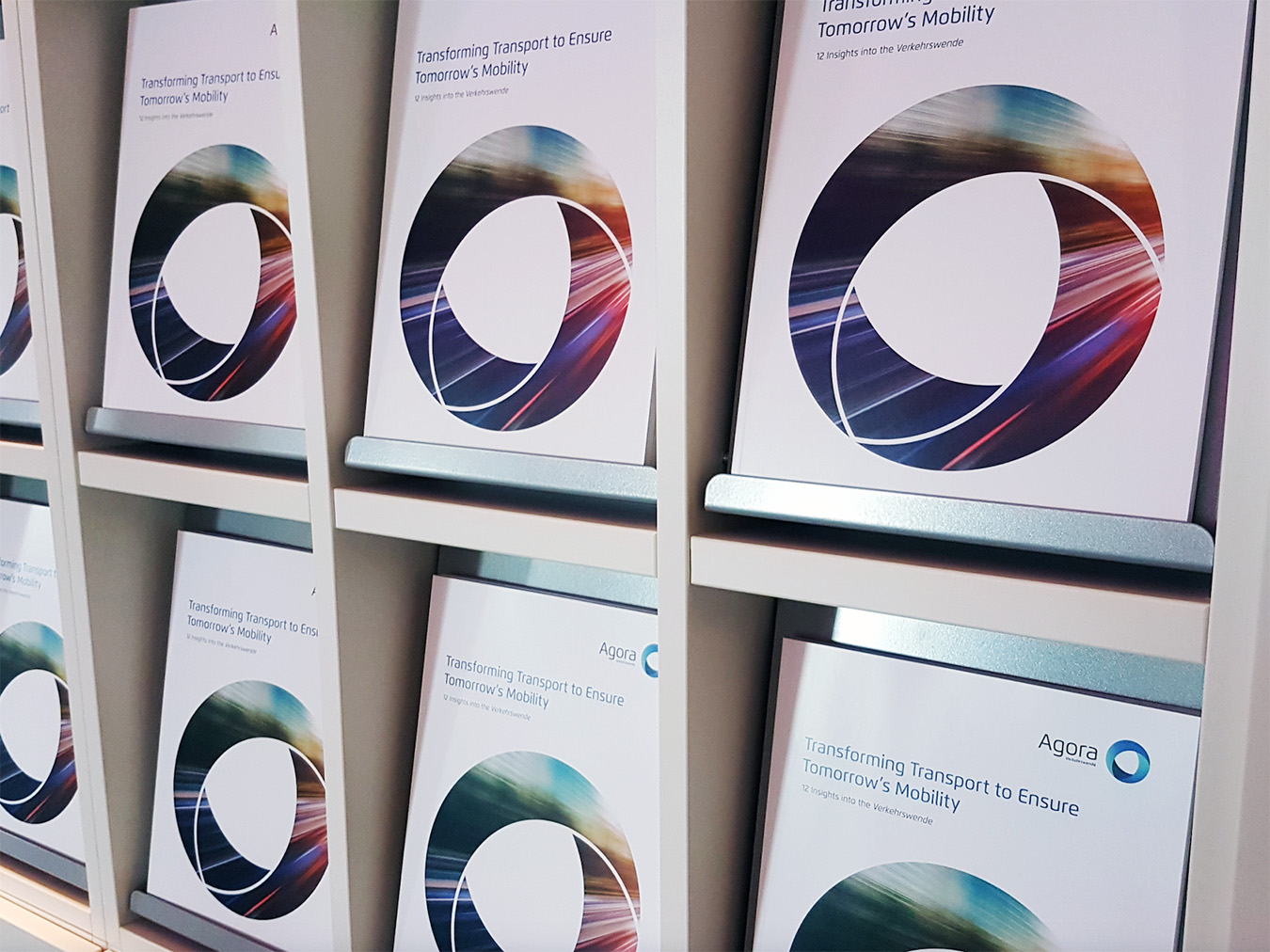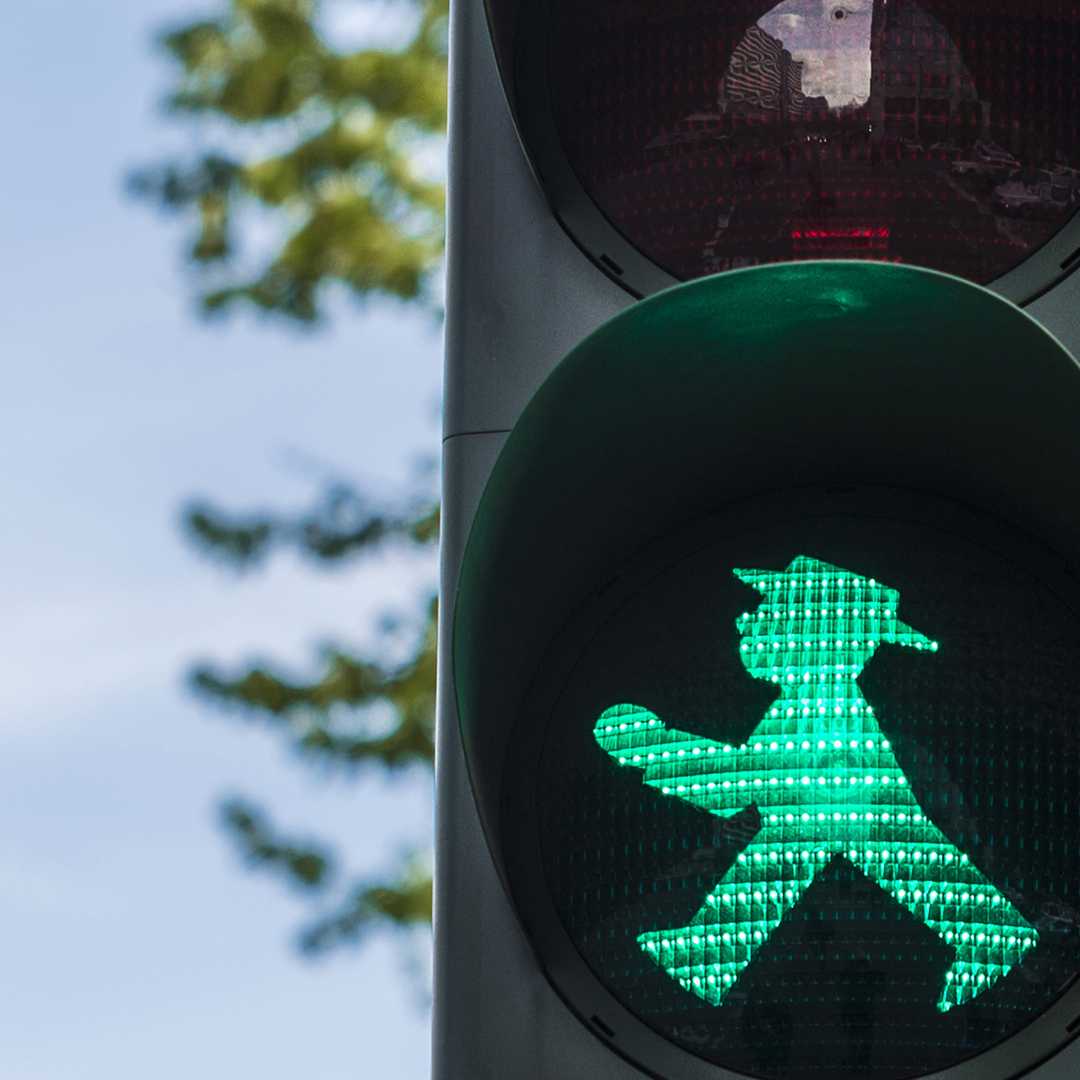- Publication date
-
17 October 2017
- Project
- This publication was produced within the framework of the project 12 Insights into Germany’s Transport Transformation.
This content is also available in: German
Transforming Transport to Ensure Tomorrow’s Mobility
Twelve insights into sustainable transport – New report now available in English

Preface
A carbon-neutral transport sector is achievable by 2050 without limiting personal mobility. This is the key finding of a report published in early 2017 by the Berlin-based think tank Agora Verkehrswende. The report has now been released in English under the title 12 Insights into the Verkehrswende.
The report’s authors argue that the transformation of Germany’s transport sector towards green energy and efficiency – known as the Verkehrswende in German – will affect people’s everyday lives more than the ongoing clean-energy transition in the power sector. Yet they also stress that a decarbonised transportation system stands to benefit cities, the economy, and even individuals, who will have “safer, healthier and less stressful” mobility options at their disposal. More importantly, the transformation of the transport sector will play a pivotal role in the achievement of Germany’s policy targets for clean energy and climate action.
Making a green, sustainable transport sector by 2050 not only depends on technological advances such as electric cars and digital networking. It requires the creation of an appropriate regulatory framework. To this end, Agora Verkehrswende recommends that Germany devise a comprehensive plan that spotlights the most important legislative measures to be tackled. “The plan will serve as a political beacon, ensuring that Germany can meet the emission reduction targets of 40 to 42% for the transport sector by 2030,” says Christian Hochfeld, the director of Agora Verkehrswende. A key measure going forward is to adopt ambitious Europe-wide CO2 standards for vehicles and fuels. Yet Germany also needs smart tax reforms that promote low- and zero-emission transport. Furthermore, Germany’s cities must be given the tools to promote sustainable mobility at the local level.
The 12 Insights report provides a “map and compass” for transforming the transport sector, the authors note in their preface. But the undertaking “involves much more than switching to electric vehicles.” To be a success, the transformation must reduce energy use in the transport sector and covering remaining demand with carbon-neutral energy.
To date, the German transport sector has failed to contribute to the fulfilment of the country’s own climate targets or those of international treaties. Between 1990 and 2016, transport sector emissions rose continuously, except for a short period of decline after 2000. As a result, the sector now faces enormous pressure, not only to introduce environmental measures, but also to stay competitive in other markets. “The challenge Germany faces,” says Hochfeld, “is to honour its climate commitments while maintaining a competitive industrial sector.”
In spite of many past promises, the Germany government has not managed to reduce domestic traffic volumes or encourage a shift from roads to rails. But as Hochfeld notes, “digital technology is empowering climate-friendly commuter behavior while providing a unique opportunity to enact transport-sector regulations that reduce energy consumption and encourage lower carbon emissions.”
The report identifies renewable electricity as the main enabler of climate-neutral transport. It notes that direct power use in electric battery vehicles are more efficient than liquid- and gas-based synthetic fuels produced by renewable electricity, though these could serve as an important power supplement, especially in aviation and shipping. Nevertheless, Germany’s current trajectory for the expansion of renewables is not ambitious enough to cover the growing power demand of the transport sector. Hochfeld emphasises that this fact must “receive increased attention in political debates as soon as possible.”
12 Insights into the Verkehrswende is available for download below.
Bibliographical data
Downloads
-
pdf 3 MB
Agora-Verkehrswende-12-Insights_EN_WEB.pdf
12 Insights into the Verkehrswende


